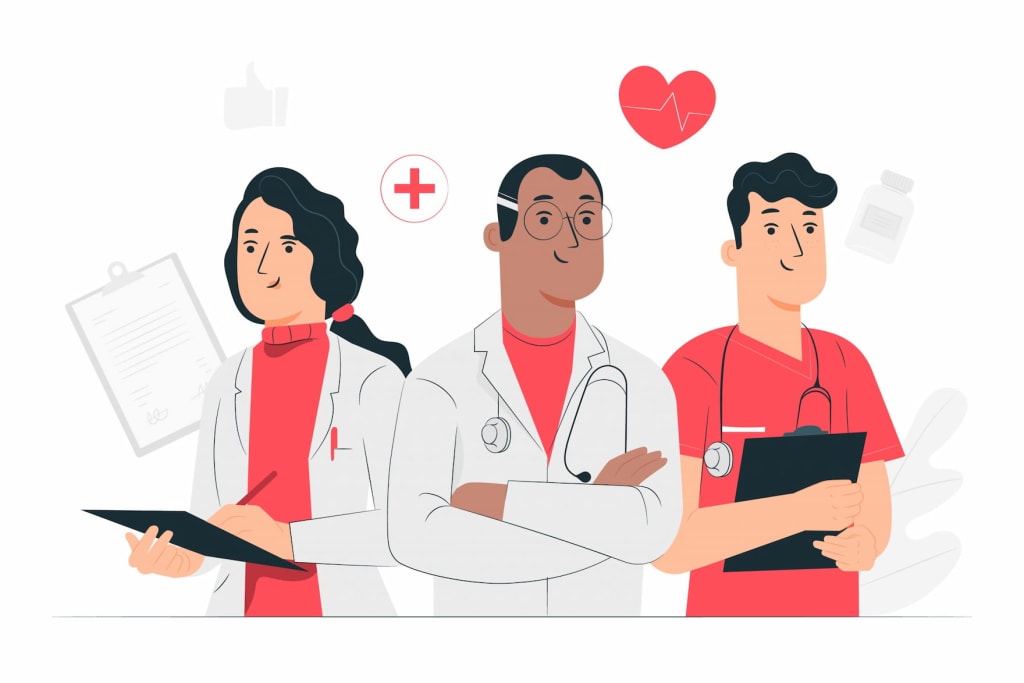How Hospital Management System Can Beneficial For Hospitals?
Hospital Management Software development

Hospital management software has always been a priority topic in the healthcare industry. With COVID-19, hospitals and clinics are now at the forefront of a massive outbreak. This has led to a number of changes in managing high patient volumes. Medical facilities were the first to experience this issue when the pandemic started. The lack of patient management and decentralized work processes slowed down the number of available delivery appointments at medical facilities throughout the world.
Clinics and hospitals have to deal with many different challenges these days. They need to take care of the same processes, for example, budgeting, appointment scheduling and billing, but also data storage and information security. A modern and efficient clinic management system will help you to do this by centralizing all of your departments’ work into one easy-to-use program. The demand for such systems is growing and will continue to increase further. But how to create hospital management software? What features of custom hospital management software to include and is it worth it? Keep reading and you will learn the essentials.
What is Hospital Management Software?
Hospital management software or clinic management software is a type of software designed for clinics, hospitals, and other medical facilities to manage and store financial, medical, and administrative data; automate work processes; manage patient appointments. Hospital management software helps medical professionals perform tasks such as billing patients, managing inventory and supplies, creating appointment schedules and much more.
Hospital management software enables hospitals to be far more efficient. It is used by physicians, nurses and other hospital staff to manage patients, schedules, appointments and prescriptions. Additionally, such software can help in keeping the inventory up to date. Doctors don’t have to waste time manually updating patient records and they are automatically notified via SMS or email on whether their patients are available for appointment or if a cancellation has occurred.
Types Of Hospital Management Systems
Hospital management software can be divided into several categories according to its functions. Before you start to build an HMS, let’s learn about its basic types and examples in the market:
The Administrative System:
The administrative system is responsible for gathering, storing and processing all of the information about patients’ interactions with doctors. This includes medical history, treatments courses and medical assistance. The patient’s data also includes medications, as well as other pertinent details. The administrative HMS analyzes these records, reporting on patient care effectiveness and improvement methods.
The Operational And Tactical System:
A hospital’s operational and tactical system is the foundation of their vital medical data. It provides the organizational structure necessary to organize, store, and share all kinds of health information. The operational hospital system provides a convenient way to access critical healthcare data so that you can improve your organization’s efficiency and outcomes.
Task-Based Systems:
Task-based medical management systems, or HMS, consist of the latest technology and software, making them a helpful tool for today's busy healthcare professionals. These systems automate tasks and reduce workload for your staff. Although there are many technologies that can help with task distribution, task-based HMS is ideal for healthcare organizations as it automates responsibilities across departments as well as helps to better track tasks.
Subject-based Systems:
Subject based systems are the ideal type of hospital management software. In this kind of software, the data is stored in individual documents, which can be easily updated and deleted. Also, they do not require any specialized expensive equipment to operate. Subjects in subject based systems are easily distinguishable due to their unique names and appropriate descriptions.
Financial Or Billing Systems:
In the healthcare industry, finance is an essential service. Hospitals have to deal with billing and insurance operations to be able to accurately assess their own financial performance. A financial system integrates information from all administrative, operational, and medical services. It also stores all patient treatment records for quick retrieval in case of any discrepancy.
How to develop a hospital management system software
Define Business Needs and goals
The product discovery process is the first step in defining that elusive “pitch” or “product/market fit.” Through research and analysis, we can help you identify your market’s main needs and discover whether a product idea would fit into that marketplace. Our business analysts will use their industry knowledge to determine what is necessary for success in that specific niche and market.
Set Up Security Measures
Security is a major concern in the healthcare sector. To make your software reliable and keep all patient data in safety, you will want to employ security measures in your HMS. Technological innovation cuts both ways: new technology allows us to provide better care at lower cost, but it also makes our systems more vulnerable to cybercrime. In a nutshell, HMS is constantly monitoring the Web for malicious activity while protecting all data from those threats
Meet Regulatory Compliance And Standards Requirements
Healthcare is one of the most regulated industries in the world, so your hospital management system must be compliant with all these rules. This can make your life complicated because you will have to consider many different forms of regulations and standards in addition to the other requirements that we have listed above.
Develop a Efficient UX
The UX is only one part of hospital management software. The entire experience of users interacting with your software will be impacted by the UI/UX design. If you want to achieve the correct patient experience, focus on a user friendly design that allows for an easy interaction.
Advantages of Implementing a Clinic Management Software
1. Decreased Workload and Burn-Out Rates
It has been reported that in a healthcare environment, medical workers spend up to half of their working time dealing with paperwork. A multitude of factors can be attributed as causes for this high level of stress including job demands, time pressure, lack of control over work processes and poor relationships between groups and with leadership. It is important to consider software solutions that would mitigate these detrimental effects and increase staff productivity by removing unnecessary steps from repetitive tasks.
2. Decreased Costs
The administrative costs of running a hospital can be 25% of the total cost of running your business. Add to that insurance claims costs, and you have a significant amount of spending induced by bureaucracy. The process of claims procession requires a lot of repetitive manual work, which can be streamlined with a proper healthcare management system. In addition, management software can streamline workflow and optimize other areas of managing a medical facility as well.
3. Increased Customer Satisfaction
Using a software system to manage patient information, book appointments and coordinate the entire process ensures that the patient has a more convenient and secure experience. Moreover, an intuitive interface helps doctors make informed decisions based on complete medical knowledge with instant access to lab results through an automated process. The billing process is also transparent and easy for patients to understand. Patients can do everything from registering for services to communicating with their healthcare providers via email or text messaging.
4. Clearer Strategic Development
A hospital management system is a must-have for any hospital. With one in place, it makes it easier to see the full picture and have full control over internal processes. As a result, management has all the tools necessary to make and implement strategic decisions for furthering productivity and efficiency of the healthcare establishment. Otherwise, it is difficult to navigate through bureaucracy and rapidly implement necessary strategic corrections.
About the Creator
DigiPrima Technologies
Digiprima Technologies is the partner for all your need of various IT services including Web presence, Mobile application, document management and Process. visit- https://www.digiprima.com/






Comments
There are no comments for this story
Be the first to respond and start the conversation.